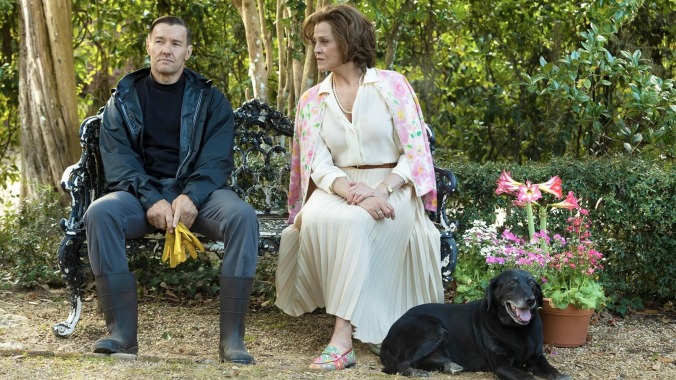Master Gardener review: Joel Edgerton broods in a drama that doesn't fully bloom
Sigourney Weaver co-stars in Paul Schrader's latest tale of lonely men seeking redemption

A man sits at a desk, writing in his journal while the camera circles him. It’s an image that’s been repeated in every film of Paul Schrader’s recent loose trilogy. The three films are connected by this image and by the fact they are about lonely men afraid to connect while grappling with the sins of their past and dealing with a calamity in their current lives. In First Reformed (2017) the story was about a priest, in The Card Counter (2021) a gambler, and, in his latest, Master Gardener, it’s a horticulturist with a trove of secrets.
Joel Edgerton plays Narvel Roth, as meticulous and orderly in his appearance and mannerisms as the gardens he tends. His clothes and his room are extremely tidy and organized, even the way he walks and talks is precise. This is a man who disappears within an organized life, trying to give away nothing. Yet something is off, judging by the nightmarish flashes from his past he keeps experiencing. Enter Maya (Quintessa Swindell), the grand niece of his haughty and imperious employer Mrs. Haverhill (Sigourney Weaver), who becomes the catalyst that unravels his careful existence.
Master Gardener supposedly has a contemporary setting. Yet it feels out of time, or belonging to a long gone era. Part of that is the profession of its lead character, and part is Mrs. Haverhill. Both seem like relics from another time and place. She’s as orderly in her life as Narvel with an added notion of always demanding perfection. The way Weaver plays her you could see her overseeing a plantation in the American South or a colonial English farm in a land far away from the British Isles.
Haverhill’s dynamic with Maya is a peculiar one. She cares enough about her to provide her with a job, but not enough to actually talk to her. She calls her “mixed blood” with a contempt that belies her prejudice. When they finally meet on screen, it’s a scene that sizzles with so much pent up anger because of a shared, frustrating family history—or as Haverhill calls it, “the muck of the past.” It’s a conversation that proves Schrader’s facility with heightened language that feels both organic to the characters and grand enough to befit a tall tale.
 Keep scrolling for more great stories.
Keep scrolling for more great stories.
